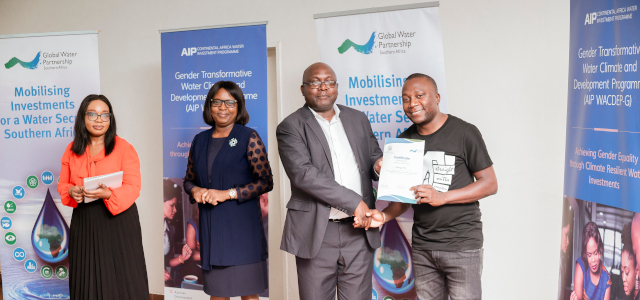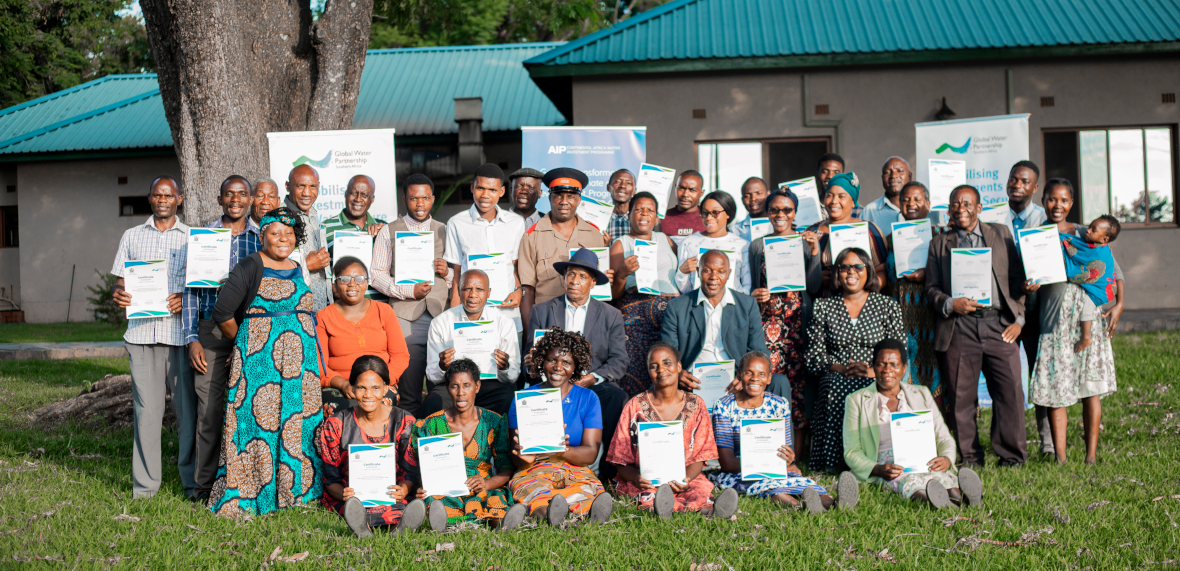The training, which runs from 28 November to 2 December 2022, among others, helped the participating officials appreciate the current gender gaps that exist in the water sector in Zambia and the proactive steps they could take to ensure impactful inclusion of women in water and climate resilient projects.
The training was aimed at helping officials understand the need for integration of gender in water and climate change programs to ensure that interventions are bearing more effective, efficient, and successful results.
The training was conducted under the Continental Africa Water Investment Program (AIP) Water Climate Development and Gender Transformation (WACDEP-G) Support Programme, which has been piloted by the Global Water Partnership (GWP) in five African countries including Zambia.
The goal of the AIP WACDEP-G is to build capacity to ensure that the preparation, development, design, governance, and management of ongoing and new climate resilient water infrastructure investments, institutions, and job creation interventions strategically advance gender equality.

GWPSA presents certificates to participants for the training in gender integration in water in the Mazabuka District, Zambia
According to Dr. Nawa Mwale, GWP Zambia's Gender Advisor, the gaps identified through the implementation of the AIP WAGDEP-G Program in Zambia include the lack of qualified gender and social inclusion staff at project implementation level who can fully appreciate and execute their mandates and the lack of identification and elimination of barriers to women's participation in project activities.
"We have also noted that there is a low number of women in technical and professional positions, especially at the decision-making level, which is further worsened by the lack of application of the constitutional and institutional provisions relating to women's inclusion in decision-making positions. There is also a lack of capacity in gender responsive budgeting, leading to limited interrogation of gender related budget, lines resulting in a failure to respond to the different experiences and interests of women and men," explained Dr. Mwale during the training.
Topics covered during the training included gender concepts, global, regional, and Zambia's overview of gender equality, gender norms, stereotypes, gender roles and relations, challenges, success stories, and opportunities for gender integration in water and climate and developing gender action plans.
Officially opening the training, Mr. Oliver Chinyama Mulomba Mazabuka, District Commissioner, hailed Global Water Partnership Zambia for choosing Mazabuka district for such an important training involving various stakeholders.
The District Commissioner stated that, "the government of Zambia agrees that women should not be left behind in important issues like decision making processes; after all they are the majority in the population. For us to attain gender equality, we should involve women at all levels, hence I am happy to see a good representation of women in this workshop"
In explaining the gender inequality challenges that the district faces, the District Commissioner cited an example of water projects by stating that, "If the community wants to sink a borehole, usually it is only men that attend the planning meetings and yet when sunk, it is women who draw water from there and are confronted with challenges that come from securing water for household needs. Therefore, both men and women should work together, and no one should be left behind"
The AIP WAGDEP-G Program in Zambia has so far helped review and revise the National Water Policy under the Ministry of Water Development and Sanitation; the Gender Responsive Budgeting and Planning Guidelines under the Office of the President; and supported the Ministry of Green Economy and Environment in the development and implementation of the National Adaptation Plan. The Program has also trained government staff at national and provincial levels, civil society organizations, and media on gender transformation. GWP interventions have helped officials appreciate the current gender gaps that exist in the water sector in Zambia and the proactive steps required for the impactful inclusion of women in water and climate resilient projects.
GWP Zambia has also supported the Ministry of Water in developing the new National Water Policy and the USD $6 billion Zambia Water Investment Program 2022 -2030.
The Zambia Water Investment Program was launched by HE Hakainde Hichilema, President of Zambia, on 16 July 2022, during the African Union 4th Mid-Year Coordination Meeting of Heads of State and Government in Lusaka, in partnership with the International High-Level Panel on Water Investments for Africa.
Read more:
